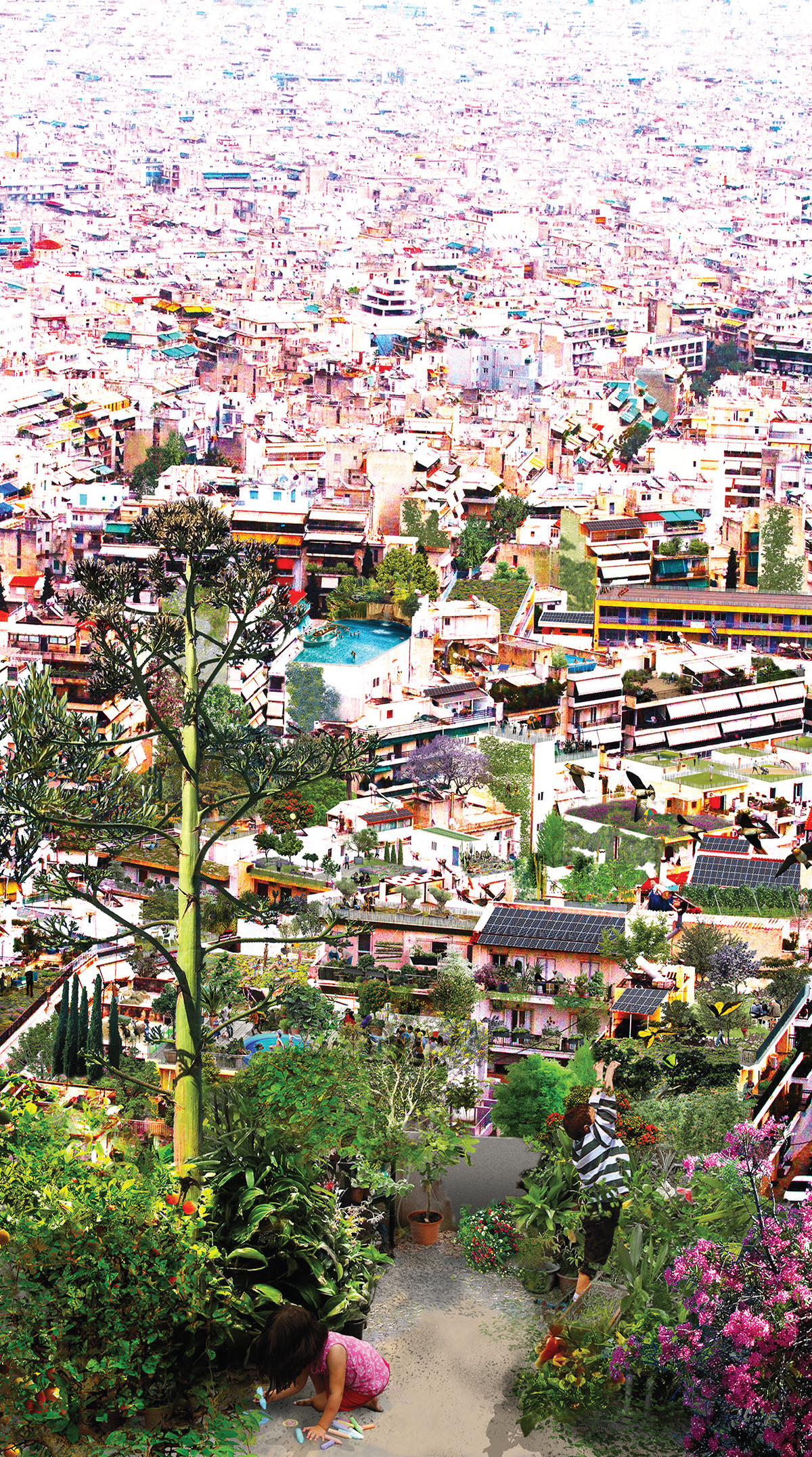Poly Garden City is a project for Athens, which incorporates green on a wide variety of hard surfaces of buildings, creating gardens and helping to change the microclimate.
Article Poly Garden City, Nikos Vatopoulos @ Kathimerini Newspaper, Greece, 29 June 2017
Improving life in Athens requires thoughtful investment and realistic proposals.
Poly Garden City is a project for Athens, which incorporates green on a wide variety of hard surfaces of buildings, creating gardens and helping to change the microclimate.
Poly Garden City sees the whole city as a canvas for greening producing a pool of ideas for the renewal of urban centers.
Just look at Athens from above to see the magnitude of the problem, but also the enormous challenge. One thinks of a variety of solutions for the vast sea of terraces – gray, energy-intensive, and aesthetically problematic. “As most of Athens’ streets are narrow and still occupied by parked cars, a strategy aimed at greening the city should focus on integrating the green in the built urban environment,” says Elizabeth Sikiaridi. “We have to envision raising the level of green, integrating it into existing buildings. To integrate green in our city through the existing structure of the block of flats “.
The idea is to capitalize on every available space in the city. Greening roofs and terraces, filling balconies with plants, creating gardens in the backyards, and climbing plants on walls and facades. Poly Garden City considers water management issues and aims at mitigating high temperatures, supporting biodiversity and noise reduction. Elizabeth Sikiaridi has been working on urban modernization issues for many years, and in 2014 she organized the workshop “Apartment Buildings as Incubators” in collaboration with the Municipality of Athens, the City of Amsterdam, the Dutch Embassy in Athens and the organization of the citizens of Amsterdam Parkhuis de Zwijger.
“Poly Garden City was a very attractive proposal that we tried to launch through various contexts,” says Amalia Zepou, Deputy Mayor of the City of Athens Civil Society and Innovation. “It will be back on the table as the Resilience and Climate Change plan has just been completed with goals and a specific timetable. It is only now that we can decide what actions will be implemented immediately, as well as those timelined until 2030. ”
In any case, Elizabeth Sikiaridi’s proposal is addressing a high priority issue for Athens, for the everyday quality of life in the neighborhoods, reducing the feeling of discomfort in the summer and saving energy. In addition, it focusses major issues such as the aesthetics of the city and the incorporation of flora into the existing urban structures. Poly Garden City is further developing across the Eastern Mediterranean where there are flat roofs as well as the need to intervene to improve the microclimate. It also co-operates with Middle East organizations (German-speaking organization “Rebuilding Allepo”) and exchanges information with Egyptian state authorities and civilian groups.
In Athens, as there are no new constructions due to crisis, we mainly discussed small interventions: gardens where there is no suitable other space for planting, pergolas as green stops for public transport, vertical planting with climbers on existing buildings – especially abandoned ones as a measure of protection from graffiti – as well as on large visible mid-walls” says Elizabeth Sikiaridi. Through Poly Garden City, a new understanding and approach to the city as a living organization is developed, a process that involves working with authorities and educating citizens through information for prevention and avoidance of problems.”
related PROJECTS
related PRESS
